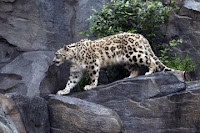Kenya leads the way in Solar, Wind and Geo-thermal Power

Kenya Renewable Energy Of developing regions, Africa has had the highest percentage rise in investments in renewable energy; in sub-Saharan Africa, Kenya is leading the way. With electric power being unreliable and power bills rising, many Kenyans - of whom 25% use electricity - are turning to solar panels; both in urban and rural areas. Solar power is clean, very convenient and in the long run, cheaper to use. Many hotels, furnished apartments for rental and households around Nairobi, are opting for solar panels to heat up water; in rural areas, where most use the uneconomical and the very unhealthy kerosene lanterns, many are now turning to solar power; one Kenyan company - Solantern - is very much assisting in that. Kenya is already a leader of renewable energy with three quarters of the country's energy coming from hydro-power and a further 11percent coming from geothermal sources . When the Lake Turkana Wind Power plant is completed, it will be the largest of its kind i...

